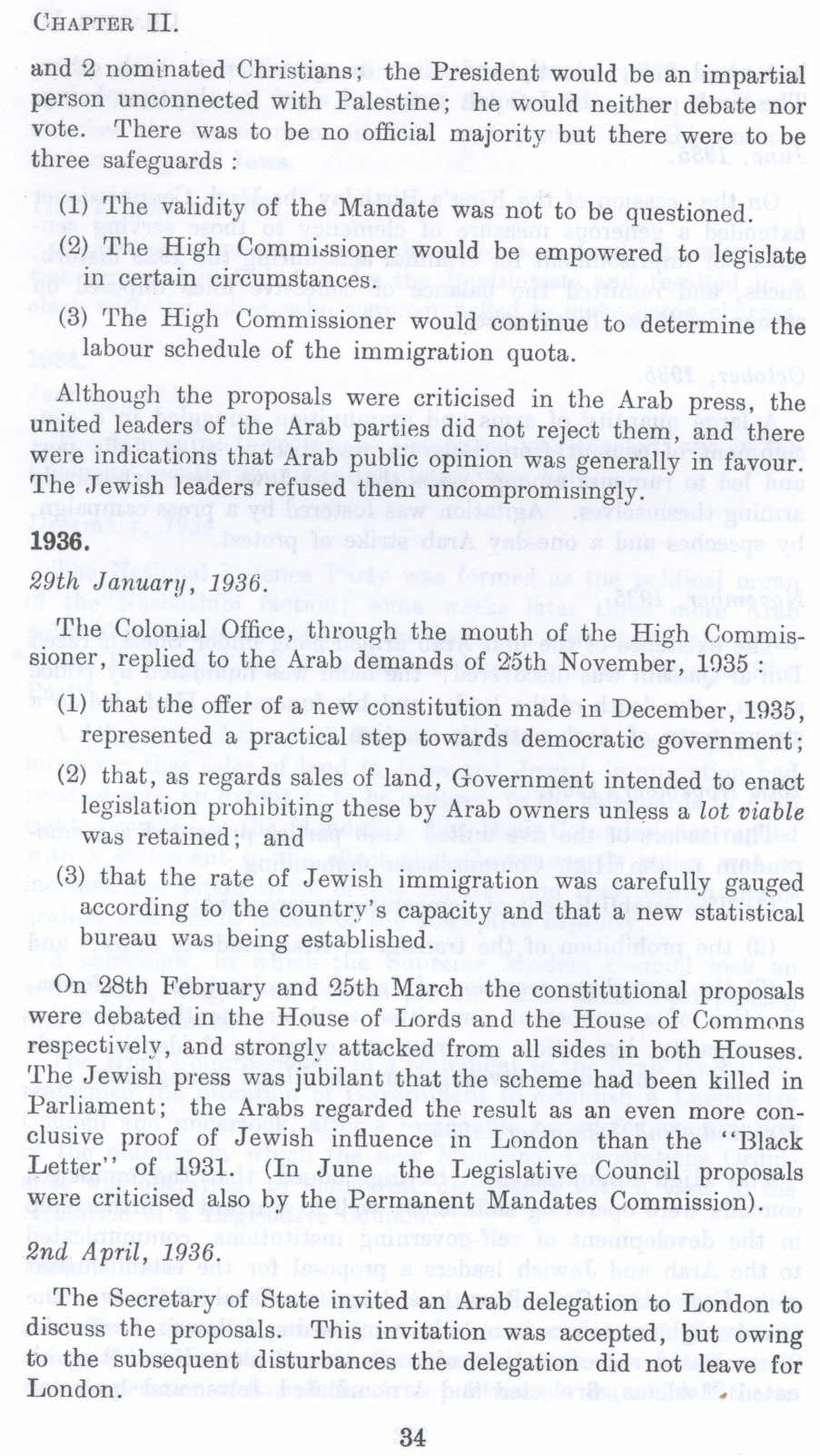| Prev | Next |  |
| Prev | Next |
| PalestineRemembered | About Us | Oral History | العربية | |
| Pictures | Zionist FAQs | Haavara | Maps | |
| Search |
| Camps |
| Districts |
| Acre |
| Baysan |
| Beersheba |
| Bethlehem |
| Gaza |
| Haifa |
| Hebron |
| Jaffa |
| Jericho |
| Jerusalem |
| Jinin |
| Nablus |
| Nazareth |
| Ramallah |
| al-Ramla |
| Safad |
| Tiberias |
| Tulkarm |
| Donate |
| Contact |
| Profile |
| Videos |
British Mandate: A Survey of Palestine: Historical Summary 1934-6. Volume I - Page 34 |
Disclaimer
The above documents, article, interviews, movies, podcasts, or stories reflects solely the research and opinions of its authors. PalestineRemembered.com makes its best effort to validate its contents.


Post Your Comment
*It should be NOTED that your email address won't be shared, and all communications between members will be routed via the website's mail server.
and 2 nominated Christians; the President would be an impartial person unconnected with Palestine; he would neither debate nor vote. There was to be no official majority but there were to be three safeguards :
(1) The validity of the Mandate was not to be questioned.
(2) The High Commissioner would be empowered to legislate in certain circumstances.
(3) The High Commissioner would continue to determine the labour schedule of the immigration quota.
Although the proposals were criticized in the Arab press, the united leaders of the Arab parties did not reject them, and there were indications that Arab public opinion was generally in favour. The Jewish leaders refused them uncompromisingly.
1936.
29th January, 1936.
The Colonial Office, through the mouth of the High Commissioner, replied to the Arab demands of 25th November, 1035:
(1) that the offer of a new constitution made in December, 1935, represented a practical step towards democratic government;
(2) that, as regards sales of land, Government intended to enact legislation prohibiting these by Arab owners unless a lot viable was retained; and
(3) that the rate of Jewish immigration was carefully gauged according to the country's capacity and that a new statistical bureau was being established.
On 28th February and 25th March the constitutional proposals were debated in the House of Lords and the House of Commons respectively, and strongly attacked from all sides in both Houses. The Jewish press was jubilant that the scheme had been killed in Parliament; the Arabs regarded the result as an even more conclusive proof of Jewish influence in London than the "Black Letter" of 1931. (In June the Legislative Council proposals were criticised also by the Permanent Mandates Commission).
2nd April, 1936.
The Secretary of State invited an Arab delegation to London to discuss the proposals. This invitation was accepted, but owing to the subsequent disturbances the delegation did not leave for London.
Page 34